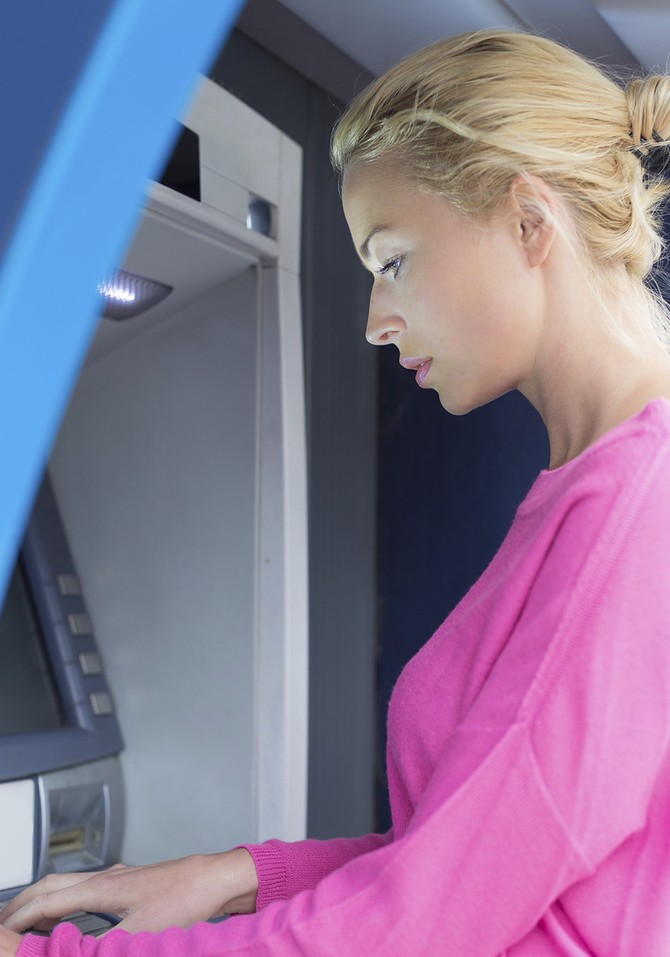5 Things People with Hefty Savings Don't Do
A counterintuitive way to look at building up your vacation fund, and more tricks you can steal from those with big bank accounts.
By Lynn Andriani

Photo: Fuse/Thinkstock
They Don't Save for Their Vacations
Daydreaming about the trip you want to take to the Bahamas in March may provide great motivation for socking away cash, but research shows that focusing on the $6 energy bars you're going to skip three times a week might get you to the beach faster. A study published in the journal Pyschological Science explains that people who concentrated on cutting recurring expenses saved 82 percent more than those who were thinking about the future.

Photo: curtis_creative/iStock/Thinkstock
They Don't Wait for the Statement to Come in the Mail—Not Even Email
Guess what happens when you check your bank balance or credit limit on your phone before you make a big purchase? Half the time, you don't buy the item in question—at least, that's what happened in a study published by the Federal Reserve last year. And while we're on the subject of modeling our behavior on the wealthy, the same study found that people who earn more than $100,000 annually are significantly more likely to use mobile banking. (Just don't check your accounts on public WiFi; a surprising number of people do this, even though it's risky.)

Photo: kasto80/iStock/Thinkstock
They Don't Use Other Banks to Get Cash
If you're still paying fees to withdraw money from the nearest ATM, this may make you change your ways: A recent survey from Bankrate.com found that the average fee for using an out-of-network ATM has increased 23 percent over the past five years, and it has hit a new high for eight years in a row. The current average is $4.35 per transaction. One alternative to only using your bank's ATMs is to switch to USAA; it refunds up to $15 in other banks' fees each month and does not charge a fee for the first 10 withdrawals.

Photo: Digital Vision/Photodisc/Thinkstock
They Don't Pick the Fluffiest Pets
We already trust you not to purchase a $3,000 Chow Chow (much as you might love him) from a specialty breeder when you don't have $3,000 in your bank account and can pay a reasonable adoption fee at your local shelter.
But adopting a pet still requires long-term consideration, since different animals come with different expenses. For instance, a large dog eats at least $235 worth of food a year, and if it requires grooming, that adds another $400 annually, while the budget for a small dog is much smaller. This chart breaks down the average you'll spend, up front and annually, on everything from fish to cats.
But adopting a pet still requires long-term consideration, since different animals come with different expenses. For instance, a large dog eats at least $235 worth of food a year, and if it requires grooming, that adds another $400 annually, while the budget for a small dog is much smaller. This chart breaks down the average you'll spend, up front and annually, on everything from fish to cats.

Photo: George Doyle/Valueline/Thinstock
They Don't Send Up Red Flags
You probably know that making late payments on your credit card or having an account sent to collections is bad for your credit score, which means you'll get a higher rate on any loan you might apply for, which means less money for you over time. (Here's one example of how a poor credit score can cost you at least $7,500 more in interest on your mortgage over five years.) However, there are some less obvious things that can trigger a "hard inquiry" into your credit (that's when a financial institution checks your credit report— a type of inquiry that can lower your score). These include renting a car using a debit card and charging too much on your business credit card.
Published 12/15/2014

